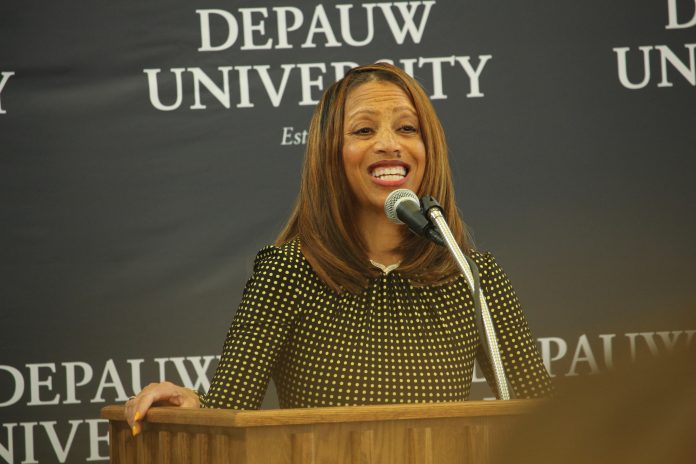
On April 22, the American Association of Colleges and Universities (AAC&U) released a letter, signed by over 500 university presidents, urging the Trump administration to work with American universities to constructively address concerns and questions about higher education in the U.S. The letter, titled “A Call for Constructive Engagement,” is remarkably tame in its complaints. It argues that the Trump administration (which is never directly named in the letter) has engaged in “unprecedented government overreach and political interference” against universities. The signees note that their universities are “open to constructive reform” and “legitimate government oversight,” but that they cannot accept “undue government intrusion” in universities’ operations.
Notably, DePauw University president Dr. Lori White’s signature was missing from this letter, despite being invited to sign it by the AAC&U. In an email sent to the DePauw student body on April 30, titled “Such a time as this,” Dr. White explained her position. She argued that her signature “represents DePauw as an institution (and all of its members),” and that while she personally agrees with much of the letter’s contents, it requires “board-level support for presidents to sign on to statements of this magnitude.” She notes that the Board of Trustees plans to discuss the letter at their meeting in May. The email continues by reaffirming that Dr. White “stand[s] for the values of freedom of speech [and] academic freedom.” It encourages students to “respect that in a community as expansive as DePauw, there will be a range of viewpoints.”
While I understand Dr. White’s concerns regarding how she represents the student body, I feel that waiting to sign this letter represents a lost opportunity to prove that she truly cares about freedom of speech in higher education. This letter comes as the Trump administration continues to attack higher education through executive orders undermining the accreditation system and mandates requiring schools to comply with Trump’s demands or lose federal funding. These orders represent tangible attacks on freedom of speech, as they restrict what students and faculty can discuss in the classroom. At Harvard and Columbia, departments studying the Middle East have been put under review, reflecting the Trump administration’s efforts to reduce discussion about the ongoing genocide in Gaza. There is no doubt, then, that the Trump administration is waging a war on higher education, one that has resulted in the chilling oppression of student and faculty free speech on campuses across the country.
Meanwhile, international students and immigrant students are feeling particularly threatened, as the Trump administration ramps up ICE raids and deportations without due process. This crisis hit close to home on April 15, when six international students at Indiana University Bloomington were told that their visas had been revoked. Later, the same week that Dr. White sent her email to DePauw students, Bloomington students and residents reported ICE sightings across the city and on IU Bloomington’s campus. It’s important to note that the reports of ICE on campus are unconfirmed, but there are confirmed reports of ICE officials arresting an individual in the city on a federal warrant. As ICE raids creep closer and closer to DePauw’s campus, vulnerable students are reporting feeling “particularly stressed,” as Dr. White put it in her email. Despite acknowledging the real and valid fear that international students are experiencing, Dr. White does not provide any resources for vulnerable students in her email, stating only that DePauw will “continue to support our members in all the ways that we can.”
The AAC&U letter represents a form of resistance against these attacks on higher education and international students, at a time when resistance is key to higher education’s survival. Political scientists and scholars across the country are in consensus that Trump’s leadership is dragging the U.S. further towards authoritarianism, and his assault on higher education is only beginning. Now is the time for universities to act with urgency to protect the freedom of speech of their students and faculty, not to push their decisions off until the next board meeting. By postponing signing this letter, Dr. White has failed to show genuine commitment to protecting DePauw students and faculty, making me believe that her statements on freedom of speech are simply lip service. At “such a time as this,” the DePauw community deserves a president who is willing to take a stand for academic freedom and protect our international community. We can only hope that Dr. White will change course and be that president.
